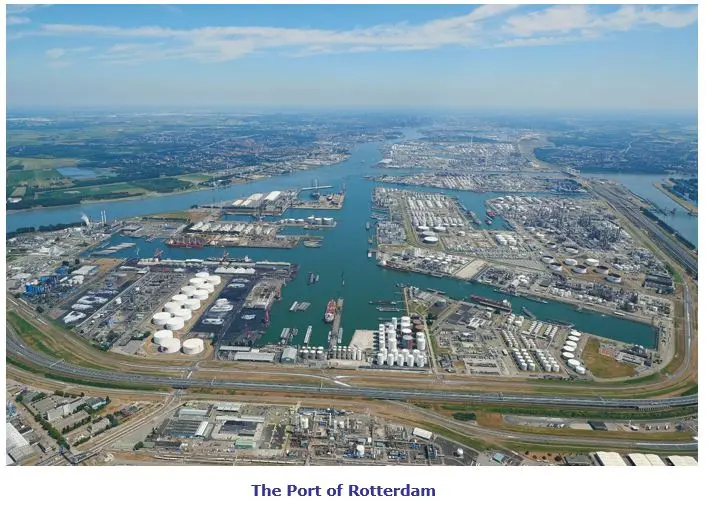

The Port of Rotterdam Authority and Yokogawa Electric Corporation announced that they have initiated a feasibility study to increase energy and resource efficiency across industries in the Rotterdam industrial cluster to contribute to ambitious regional decarbonization goals. A first scan showed that optimizing the use of electricity and utilities across companies could yield cost savings as high as 5%.
Individual companies in the petrochemical industry have generally highly optimized their own operations. But concerns about exposing confidential information often hamper them from looking 'beyond the fence' to work with other companies in an industrial cluster, even though this can yield further energy and resource savings. The Port of Rotterdam and Yokogawa aim to break through this barrier by facilitating confidential sharing of data and deeper integration within the cluster to unlock the large potential efficiency gains of optimizing production across entire industrial clusters.
As Europe's largest port and home to more than 200 industrial companies, the Port of Rotterdam is uniquely positioned to facilitate and implement this project in support of the energy transition. Yokogawa is able to leverage its simulation technology that supports optimal production planning, solutions for regional energy management, and consulting capabilities to uncover opportunities for efficiencies across multiple industrial systems.

The two companies have already completed a pre-feasibility study using computer simulations and comparisons with operations in the Rotterdam port industrial cluster to identify potential savings of a range of utilities. This was combined with deep-dive workshops and roundtable discussions with various companies active in the area.
The pre-feasibility study showed up to 5% improvements in efficiencies from better alignment of the use of electricity, heat, steam, and feedstocks, such as water and industrial gases, resulting in lower costs and a reduced carbon footprint. In the long run, deeper integration and optimization within the industrial cluster could yield savings as high as 10%. In this way, the Rotterdam area could develop towards an “industrial sharing economy” in which intensive sharing of resources and infrastructure leads to highly efficient operations for all companies in the region.
Following these promising initial evaluations, the Port of Rotterdam and Yokogawa have now started a feasibility study with several petrochemical and energy companies in the cluster to define concrete use cases based on existing operations. The first results of the feasibility study are expected by the end of 2023. If sufficiently positive, the next step will be to develop plans for carrying out field trials with cooperating companies in the port from 2024.

